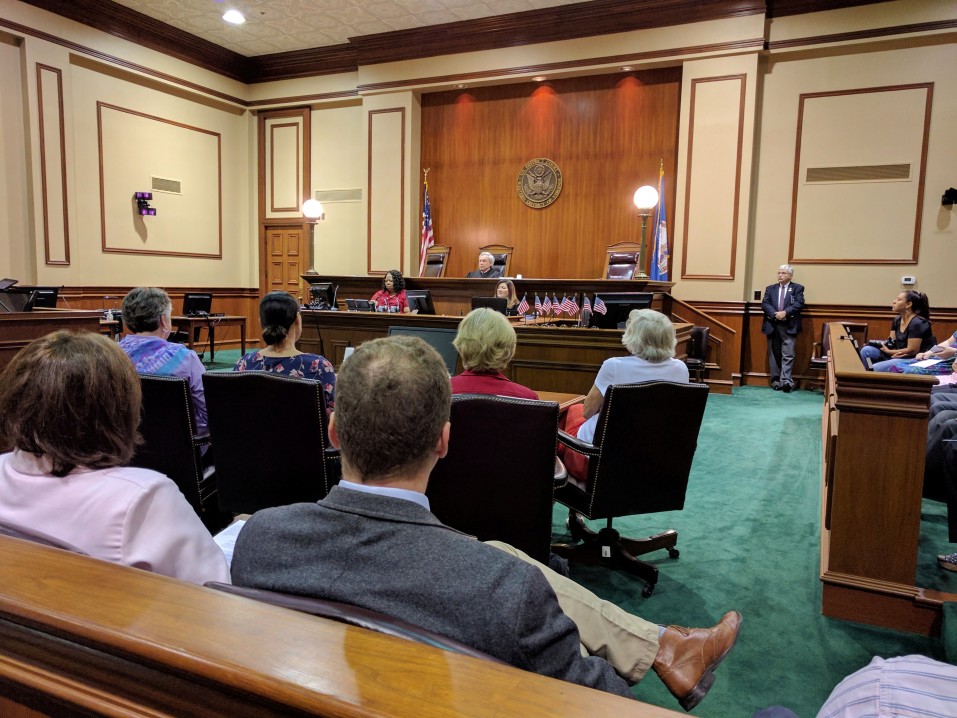What Is a Mock Trial? Everything You Need to Know
Mock trials are a common method for prosecutors or defense attorneys to test out legal arguments on real people before a trial.
Similar in many ways to a focus group, a mock trial uses participants that you’ve screened and who have specific attributes.
Just like with a real trial, you have the ability to exclude certain types of people (like other attorneys or people who are too old or too young) and to include types of people — of a certain race, for example.
Here are a few of the different types of mock trials.
Types of Mock Trials
Mock trials aren’t just designed to help you test arguments on groups similar to your potential jurors. You can also use a mock trial to get insight into your arguments and your case from retired professionals.
Trial Focus Groups
A trial focus group is when, instead of actually conducting a full-fledged mock trial, you instead gather a group of participants who resemble your potential jurors and gather insights into their thoughts and feelings on the case.
A trial focus group is often conducted during the discovery phase and allows you to find out imporant information about jurors’ biases and preconceived notions. This can be critical to your arguments because you’re able to get ahead of potential problems rather than running into them in court.
This is different from a mock trial in that you can focus deeply on any problems you come across. If you find, for example, that some potential witness testimony is confusing to the participants, you can ask them what’s confusing, why it’s confusing, and then strategize on how to ask questions that will reduce or eliminate confusion.
Traditional Mock Trial
A traditional mock trial is just what it sounds like — you’re actually conducting a trial that’s as close as possible to the real thing.
Unlike a trial focus group, you generally wait until jury deliberation to find out what the jury is thinking and why. However, you’re able to ask detailed questions during the deliberation phase to find out, for example, why one witness was viewed as being unreliable. You get insight into the actual reasoning process of the jurors.
But a mock trial has more benefits than just finding out what jurors think. If nothing else, you get to practice your arguments in real-time and practice responding to the defense or prosecution’s potential arguments.
If you have the budget, you might want to conduct multiple mock trials. Of course, not every team can afford to do this, but for cases where millions of dollars are at stake or your client has deep pockets, this can be extremely advantageous.
This allows you to compare and contrast the reactions of multiple mock jurors. The value of this is hard to overstate. If you consistently get the same feedback from one trial to the next, then you can better identify what’s working and what’s not.
And if you find that the jurors give different opinions based on the same information and arguments, you have the opportunity to find out why that might be.
You’ll also get more practice, and as you learn what arguments are/aren’t working, you can refine your technique from one mock trial to the next.
Ultimately, this all depends on budget and time. If you can afford it, there are few better ways to prepare for a trial.
Mock Trials with Retired Judges and Attorneys
While the traditional mock trial is designed to help you focus on the jury and then draw insights from what mock jurors think and feel, you can also hold a mock trial with retired judges and attorneys who are knowledgeable about the type of case you’re arguing.
This adds a completely different dimension to the mock trial itself. It allows you to see what an actual potential judge might think and how they might react to your summary arguments. They can give you an assessment — based on extensive experience — of your case and help you understand where your case is weak and how to strengthen it.
Mock trials with retired judges and attorneys can be held as mock bench trials, mock oral arguments, mock arbitration, and mock case settlement and case valuation. In each case, you’ll have access to experts who can give invaluable feedback and help you sharpen your case for the real trial.
How Much Does a Mock Trial Cost?
The difference between conducting a trial focus group and a mock trial can be extensive in terms of cost. Focus groups often cost between $4,000 and $15,000 for a single focus group. In most cases, you’ll want to run 4–5 focus groups to get an accurate look into what a large group of mock jurors will think or feel about your arguments, witnesses, etc.
This means a trial focus group can have significant costs. Mock trials, on the other hand, can cost less. Rather than spending $75,000 or more on trial focus groups, you might only have to spend around $10,000 to $50,000 on a mock trial.
One of the reasons for this is that a mock trial takes place in a single “run,” so to speak. You might have a very large group of mock jurors (40–50) while each focus group would have no more than 12 participants.
What makes conducting multiple focus groups so expensive is that, each time, in addition to paying participants directly for their time, you have to pay for moderators, facility fees, and screening and recruiting fees for participants.
This all adds up. With a mock trial, you’re only paying your facility fees once, your recruiting fees once, etc, so you can save some money — just keep in mind that you’re going to get fewer insights from the mock jurors.
Need Help Conducting a Mock Trial? We Can Help
We specialize in running all different types of mock trials for attorneys just like you.
Contact us today to learn more.



